Ask an Expert
Planning the right solution requires an understanding of your project’s security goals. Let Kingston’s experts guide you.
We notice you are currently visiting the UK site. Would you like to visit our main site instead?
Your web browser is out of date. Update your browser now for better experience on this site. https://browser-update.org/update-browser.html


Daniel Döring is Managing Director of EgoMind and is responsible for the operational business of the German software development provider. He is also Managing Director at smart2success GmbH where he oversees product development, information technology, and technology partnerships at the risk/project/change management provider. He draws on his experience and knowledge in IT security and software development, among other things, which he has gained since 2004.
Previously, he was responsible for the development and expansion of the product portfolio, support, pre-sales, consulting, academy, and technology partnerships at the IT security manufacturer EgoSecure.
USB storage drives continue to be widely used, especially in the era of remote work. Employees value having access to their data anytime, anywhere. Despite the availability of cloud storage and collaboration tools, the reliance on external data storage remains significant and necessary. People often feel more secure when their sensitive data is stored on devices under their control and within close physical reach. However, these external storage devices are sometimes lost or stolen, posing a risk of data breach. Therefore, it is crucial to always encrypt data stored on these storage devices.
Compared to their software encrypted counterparts, hardware based encrypted drives, like IronKey, offer many benefits such as faster read/write speeds, and low usage overhead due to inherent encryption functionality which does not require any encryption/decryption software to be installed on a host system to access the drive’s data.
Are hardware encrypted USB drives secure? The most common commercial encryption technology is AES 256-bit, which is considered secure based upon NIST which invented the AES encryption that is widely used. Ordinary users cannot bypass this encryption, and even hackers or targeted attackers typically do not invest the effort to crack the actual encrypted cyphertext. Instead, attackers are more likely to exploit vulnerabilities in user behaviour through social engineering attacks or security implementation of storage drives.
User vulnerabilities can include weak or guessable passwords caused by user fatigue of managing too many complex passwords, and worst of all, some security vulnerabilities can often exist within applications or drives. During use, attackers may attempt to spy on passwords during input or electronically attempt to manipulate the drive authentication process to gain access to the encrypted data.
This creates a problem for users of such drives – how can one know that the manufacturer can be trusted for implementing proper safeguards and security to ensure the protection of data against hackers and attackers who may find the specific drive or worse, have stolen it.
To ensure the security of the leading enterprise grade IronKey Vault Privacy 50 series, Kingston Technology had penetration tests performed by third-party experts who simulated hacking attempts to identify and address vulnerabilities rather than exploit them for criminal purposes. Pen testing is one of the best tools in cybersecurity to provide confidence in a device or software and ensure that the product’s security design is robust.
Enhanced data security:
Hardware encryption ensures that the data stored on the VP50 series drives is protected at rest and in transit. It uses a dedicated secure microprocessor embedded in the drive, making it resistant to software-based attacks as well as password guessing – this is known as BadUSB where the drive keeps track of invalid passwords and ultimately crypto-erases its contents to prevent access to the data. This added layer of security reduces the risk of unauthorised access and data breaches.
Ease of use:
Hardware encrypted VP50 drives are user-friendly. They include built-in secure software authentication that runs without needing installation on a system making it convenient for users to unlock and access their encrypted data. This eliminates the need for complex encryption setups usually required with software encryption, simplifying the data protection process. As a result, the ease of using hardware encrypted drives ensures that employees will be less likely to turn to insecure workarounds.
Compliance with security standards:
Many industries and organisations have specific security and compliance requirements such as GDPR which requires strong encryption of data. Hardware encrypted IronKey drives often meet or exceed these standards, which includes FIPS 197 certified AES-256 bit encryption in XTS mode. FIPS 197 is a lab-tested certification that verifies that the encryption is properly implemented as designed by NIST.
Protection from malware:
Hardware encryption completely occurs within the USB drive itself, meaning that encryption keys never leave the drive and are not exposed to the attached computer’s memory where it can be snooped, retrieved from swap or hibernation files and discovered. This protects the drive’s data from malware that may be present on the host system trying to intercept the encryption keys.
Increased performance:
Hardware encryption is faster than software encryption methods, as it offloads the encryption and decryption tasks to the dedicated secure microprocessor within the USB drive. This results in faster data transfers and improved overall performance compared to software-based encryption solutions, which use host PC resources.
Trusted vendor:
The key benefit of successfully passing pen testing by an independent third-party is to assure customers that the drive is engineered to high security standards and can be trusted as a data protection device.
It is important to note that while pen-tested hardware encrypted USB drives provide significant security advantages, they should still be used in conjunction with other security measures, such as strong passwords, regular data backups, and secure data handling practices, to ensure comprehensive data protection. In addition, enterprises need to implement good data security hygiene so all employees follow guidelines to properly safeguard sensitive information.
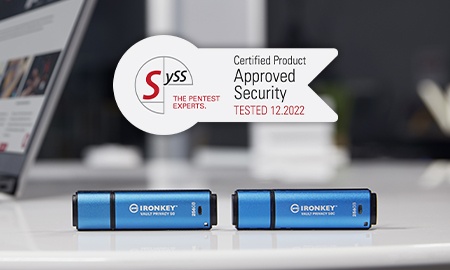
The established professional penetration testing team from SySS GmbH in Germany subjected Kingston Ironkey Vault Privacy 50 series (Type-A & Type-C®) drives to penetration tests, specifically focusing on user authentication and key handling within the user software.
The penetration testing was successfully completed without discovering any vulnerabilities, leading to Kingston IronKey receiving an Approved Security certificate from SySS GmbH.
With a longstanding reputation and strong trust, Kingston IronKey leads the way in hardware encrypted USB drives providing customised support tailored to your business requirements. Their exceptional "Ask an Expert" team ensures personalised advice that precisely aligns with your environment and unique needs.
#KingstonIsWithYou #KingstonIronKey
Was this helpful?

Planning the right solution requires an understanding of your project’s security goals. Let Kingston’s experts guide you.
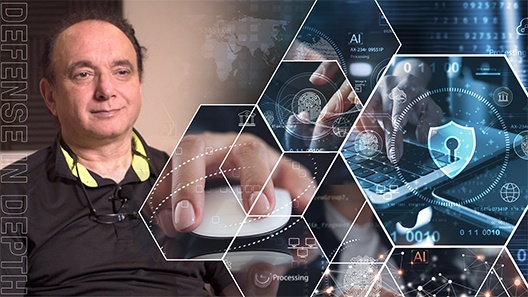
David Clarke covers encryption, super user safeguards, vulnerability management, and training.
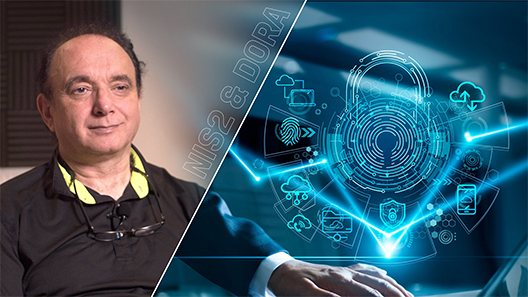
We discuss NIS2 and DORA, and how organisations can turn compliance into an opportunity.
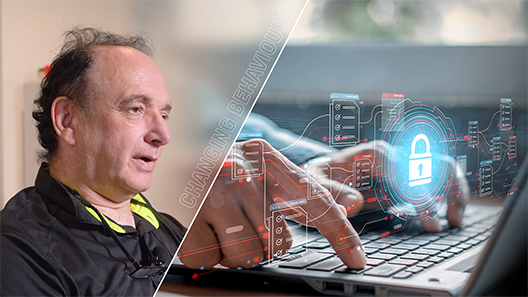
We discuss the shifts in how organisations are storing and encrypting sensitive data.
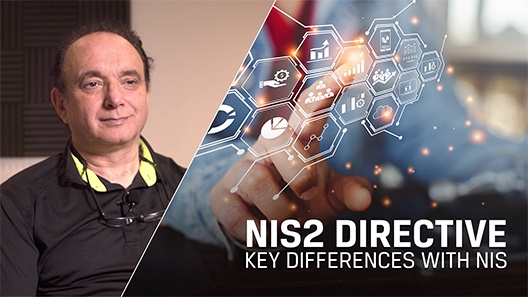
Security expert David Clarke explains the key differences between NIS and NIS2.
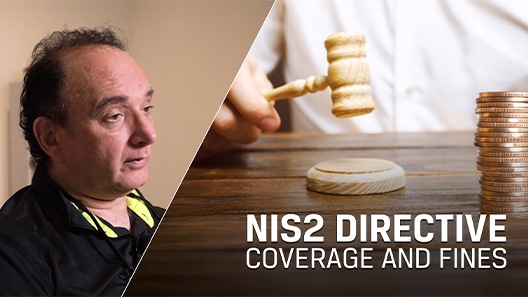
Security expert David Clarke explains who will be affected by the NIS2 Directive and how.

Remembering to backup frequently can evade even the most experienced tech enthusiast. We’ll cover some simple tricks to ensure you can easily backup regularly.
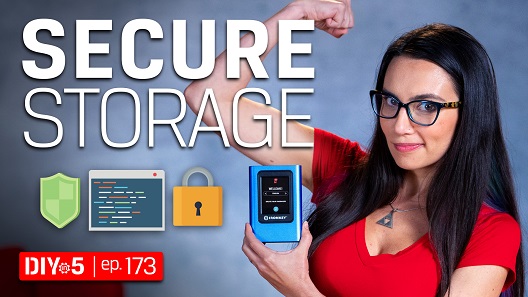
For creatives that produce content for high-profile clients, encrypted storage can secure your important files and help you fulfil your security responsibilities.
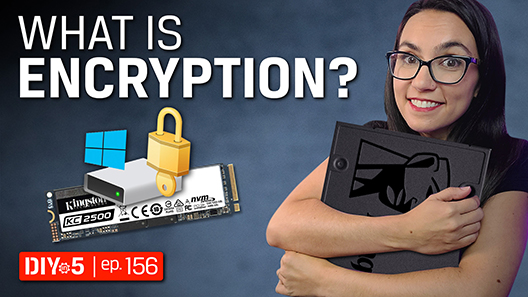
There are two main types of encryption - software encryption and hardware encryption.

How to maximise your online security by taking steps to protect your presence.
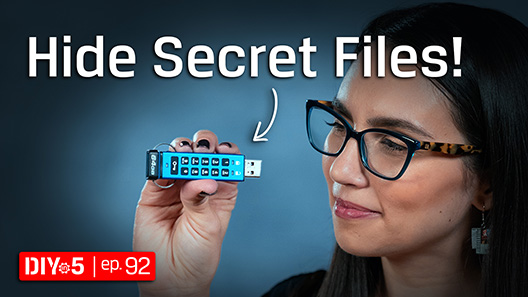
Encrypted USB flash drives keep your private data safe but how do they work?

Learn how to erase SSDs, hard drives or any other storage media so that the data is really gone forever.
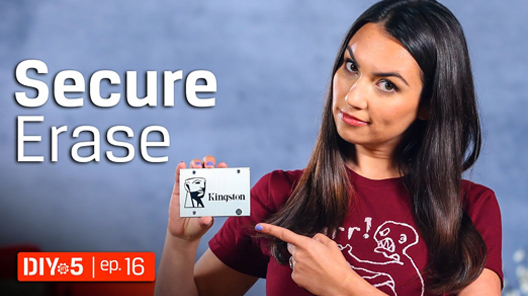
Learn how to erase SSDs, hard drives or any other storage media like a security professional.
No products match your current filter selection. Try adjusting your filters to explore more options.

Looking for improved data security & need to know what is encryption? Kingston covers the basics.

Hardware, not software-based password protection, is the best way to protect files and drives.

Secure important personal and private information on a PC with a hardware-encrypted SSD.

Breaches remain a major threat. Explore the need for comprehensive cybersecurity measures.

Here is a list of USB security features to consider for data protection.

Learn what the 3-2-1 data backup method is and why it is your best defence against ransomware.
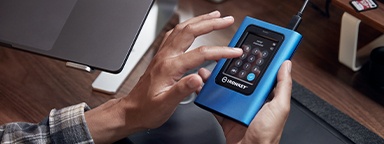
Learn data security best practices with Dr. Vynckier, and the importance of offline backups.

David Clarke covers encryption, super user safeguards, vulnerability management, and training.

Learn how Kingston IronKey's solutions helped EgoMind enhance their data security hygiene.

Built for disparate purposes, client SSDs and enterprise SSDs have different properties.

We discuss NIS2 and DORA, and how organisations can turn compliance into an opportunity.

We discuss the shifts in how organisations are storing and encrypting sensitive data.

Kingston examines how to secure sensitive files with the increasing vulnerability of email.

Learn how Kingston IronKey hardware-encrypted solutions supports NIS2 Directive compliance.

Kingston IronKey has hardware options to protect small and medium businesses against cybercrime.

FIPS 140-3 Level 3 is certified by the world-leading agency NIST as the apex of encryption.

Questions to ask when seeking the right SSD for your organisation’s data center.

Our infographic showcases the differences between software and hardware-based encryption.

2023 has been a year full of challenges and innovations. But what will 2024 bring?

Learn about two methods that give SMBs superior resilience vs ransomware: encryption and backups.

In this whitepaper, we explain how to enforce a DLP strategy, while allowing USB drive use.

Enterprise-grade and military-grade digital security: two high standards with different requirements.
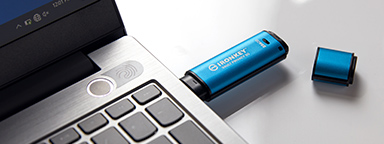
Learn how hardware encryption can protect a travelling lawyer’s confidentiality with secure file storage.

Hardware encrypted Kingston IronKey drives protects organisations’ data on the move.

Bring your own device (BYOD) policy is tricky for employers. How to balance security & convenience?

How do encrypted drives improve cybersecurity and compliance for finance companies? Kingston explains.

DLP offers tools for network admins to protect sensitive data from cybercrime and negligence.

A look at how the requirement for data encryption can be key to any organisation's security strategy.

How can we bolster network security with remote working and international travel so common now?

Invest in encrypted drives so you do not incur expensive legal fees if they are lost or stolen.

Discover why national security agencies trust Kingston IronKey to protect their data.

A company’s IT specialists should be expected to add data security to the PCs of remote workers.

Kingston’s three key practices for robust DLP for businesses that handle sensitive data.

You can read and write to an encrypted USB flash drive with an iPad or iPhone with the right adaptor. Here’s how.

Learn why hardware encryption beats software encryption for law firm data protection.

A brief explaining the purpose and types of data security software available.

Passphrases are superior to complex passwords for keeping data secure, with many powerful benefits.

HIPAA requires healthcare organisations to keep patient data safe at all times, including in transit.
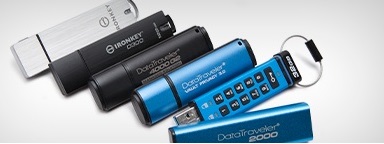
This requires encryption of sensitive data, appointing a Security Officer, cyber security programmes and policy adoption.

Kingston IronKey encrypted USBs are a security consideration for organisations of all sizes.

We compare unencrypted and encrypted USB drives and explain how to keep data secure!

Learn how Kingston IronKey is protecting the intellectual property with customisation.

Discover why Kingston IronKey is the go-to solution for protecting financial services data.

Learn how Kingston IronKey is securing the military operations’ data.
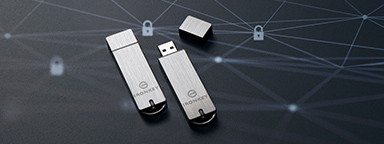
How can you get your organisation to use encrypted drives and make them part of your security policy? Here are some tips.

Learn how Kingston IronKey is protecting telecoms industry's data using encryption.

Encryption is an incredibly helpful option for creatives to protect their clients’ important files.

Kingston IronKey encrypted USBs: a small but important part of any organisation’s security strategy.

Kingston IronKey can help mitigate data loss due to the rise in lost electronic devices.

In this eBook, we explore how Encrypted USB drives have become a key tool in keeping data secure.
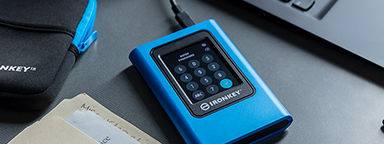
How to use your IronKey Vault Privacy 80 External SSD: set password, connecting to a PC and more.

Organisations are considering data security options to protect against private mobile data breaches.

Discover how Kingston IronKey is protecting the sensitive data of the finance sector.

Here is how Kingston IronKey helped protect the sensitive data of the Energy industry.

We explore our KingstonCognate experts’ thoughts on cyberthreats and cybersecurity challenges.

Protecting data on the move with superior hardware-based Advanced Encryption Standard (AES) 256.

Users can disable software-based encryption, which can lead to legal fees if the drive is lost.

We explore Tomasz Surdyk's thoughts on how all entities can stay secure in the digitised world.

Don’t plug any USB drives into your computer if you don’t know exactly where they came from.

What we learned from Kingston’s experts and tech influencers on work-from-home enablement Twitter chat.

There are benefits to using both cloud storage and hardware-based encryption.

We explore the top 12 tips small and medium size enterprises can take to enhance cybersecurity.

We’ve examined several factors using unique research to identify what may impact markets globally in 2022.

2021 has been a year full of challenges and innovations. But what will 2022 bring?

Prof Sally Eaves shares her thoughts on the SME cybersecurity landscape and the need for education & support.

Bill Mew shares his thoughts how the largest security challenges need commitment from the boardroom.

Rob May shares his thoughts on how close we are to edge computing and the security it requires.

The pandemic has increased internet traffic, which has placed importance on the role of data centers.

The use of DLP software, VPNs, Encrypted SSDs and USBs, will help mitigate some risks of remote working.
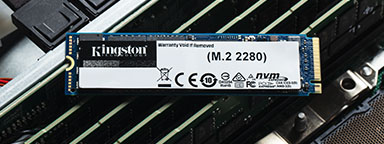
Cameron Crandall of Kingston helps you decide if you should move to your server storage to NVMe SSDs.

There are many advantages to using a dedicated hardware encryption processor in USB flash drives.

What will 2021 bring in Tech and trends? What do our KingstonCognate members and industry experts predicting for the future?

Cyber security and data privacy are everyone’s responsibility. What are the key considerations?

Learn why the future of business depends on SSD-enabled SDS, and how SSD fits into a Software Defined Storage Solutions.

Kingston & Matrix42 partnered to give optimal endpoint security solution in multiple sectors to mitigate risks.

The importance of organisations to consider Revenue, Profit & Risk as equal in organisations to ensure they mitigate data security & cyber security risks. Read this article from Industry Expert, Bill Mew & he will provide you with an insight on this topic.
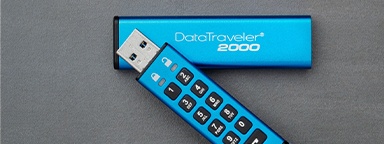
What do industry experts think has changed since the introduction of GDPR?
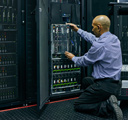
Data centres should be using server SSDs. There are many benefits over client drives and costs have come down.

NVMe is now the standard protocol for SSDs to empower data centres and enterprise environments.

Cloud and on-premise data centre managers can learn a lot from supercomputing.
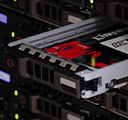
Find out how Hardwareluxx were able to manage the growth of their web traffic using Kingston's DC500M SSD.

SDS hasn’t lived up to its hype but now that NVMe is more affordable, the commodity hardware is ready to deliver.

Choosing the right SSD for your server is important since server SSDs are optimized to perform at a predictable latency level while client (desktop/laptop) SSDs are not. These difference result in better uptime and less lag for critical apps and services.

To work from home you need a good workspace for your PC, the right conferencing gear, and a secure connection.
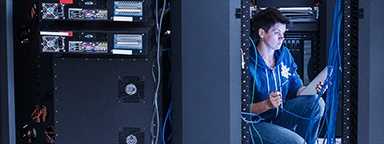
What strategies can organisations use to best secure customers data in a post-GDPR world with the ever-evolving nature of cyber security threats? Kingston pooled the knowledge of some of the UK’s most experienced commentators in cyber security to discuss how data protection has changed since the introduction of GDPR.
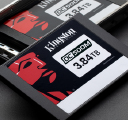
This whitepaper demonstrates how using Kingston Technology’s Data Centre DC500 SSDs can reduce your overall capital and licence costs by 39%.

You already know that remote working is a business enabler. But the challenges posed to your network security and compliance with GDPR are too big to ignore.

How to enable and disable Microsoft’s BitLocker eDrive feature to leverage hardware encryption on your Kingston SSD.

Some of Kingston and IronKey's Secure USB Flash drives are powered by partners, licensed technology, or services.
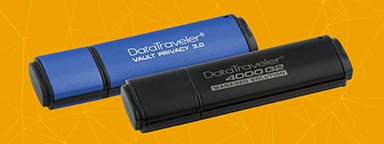
256-bit AES hardware-based XTS block cipher mode encryption is used in DT 4000G2 and DTVP 3.0.
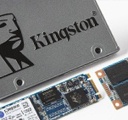
Firmware/hardware PFAIL protection is an highly effective method for preventing data loss in enterprise SSD.

Kingston datacenter SSDs provide excellent resiliency to protect sensitive data in OLTP workloads.

HPC can require massive amounts of data. SSDs consume a fraction of the power of their spinning disk.
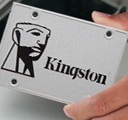
End-to-End Data Protection protects customer’s data as soon as it is transferred by the host system to the SSD, and then from the SSD to the host computer. All Kingston SSDs incorporate this protection.
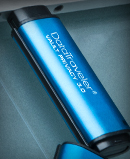
This program offers the options most frequently requested by customers, including serial numbering, dual password and custom logos. With a minimum order of 50 pieces, the programme delivers precisely what your organisation needs.

Everyday working life has changed radically and so have traditional ways of working: thanks to mobile storage media, we can access our data practically at any time from any location, and can work on our data wherever we are.

Most IronKey and Kingston secure USB flash drives are FIPS 140-2 Certified.

Heathrow Airport in London (30 October 2017) uses unencrypted USB drives for its non-cloud storage. Unfortunately, it was not standardized on encrypted USB drives.

Storage can be the most challenging component for VDI performance.

Testing is a cornerstone of our commitment to deliver the most reliable products on the market. We perform rigorous tests on all of our products during each stage of production. These tests ensure quality control throughout the entire manufacturing process.



